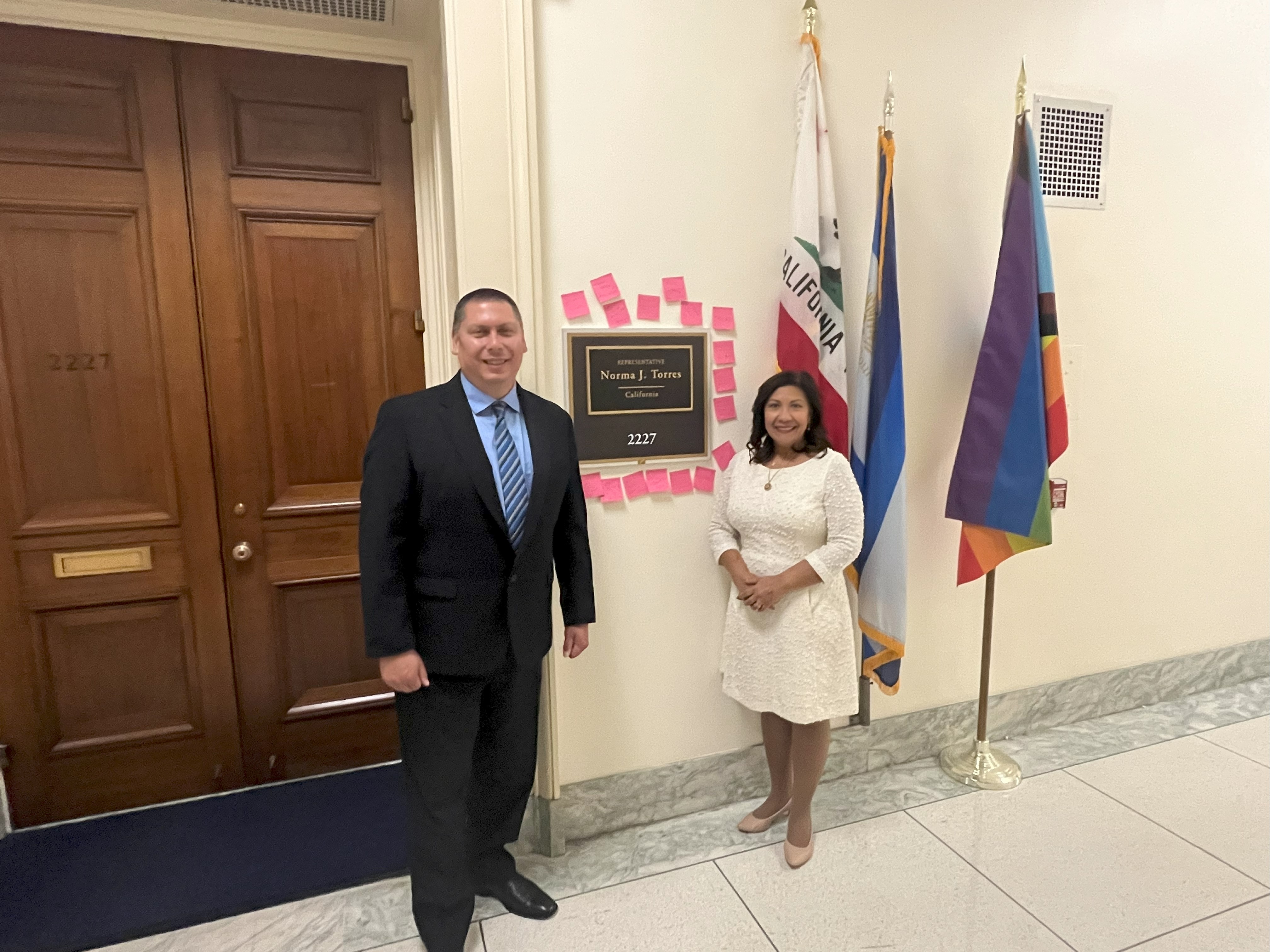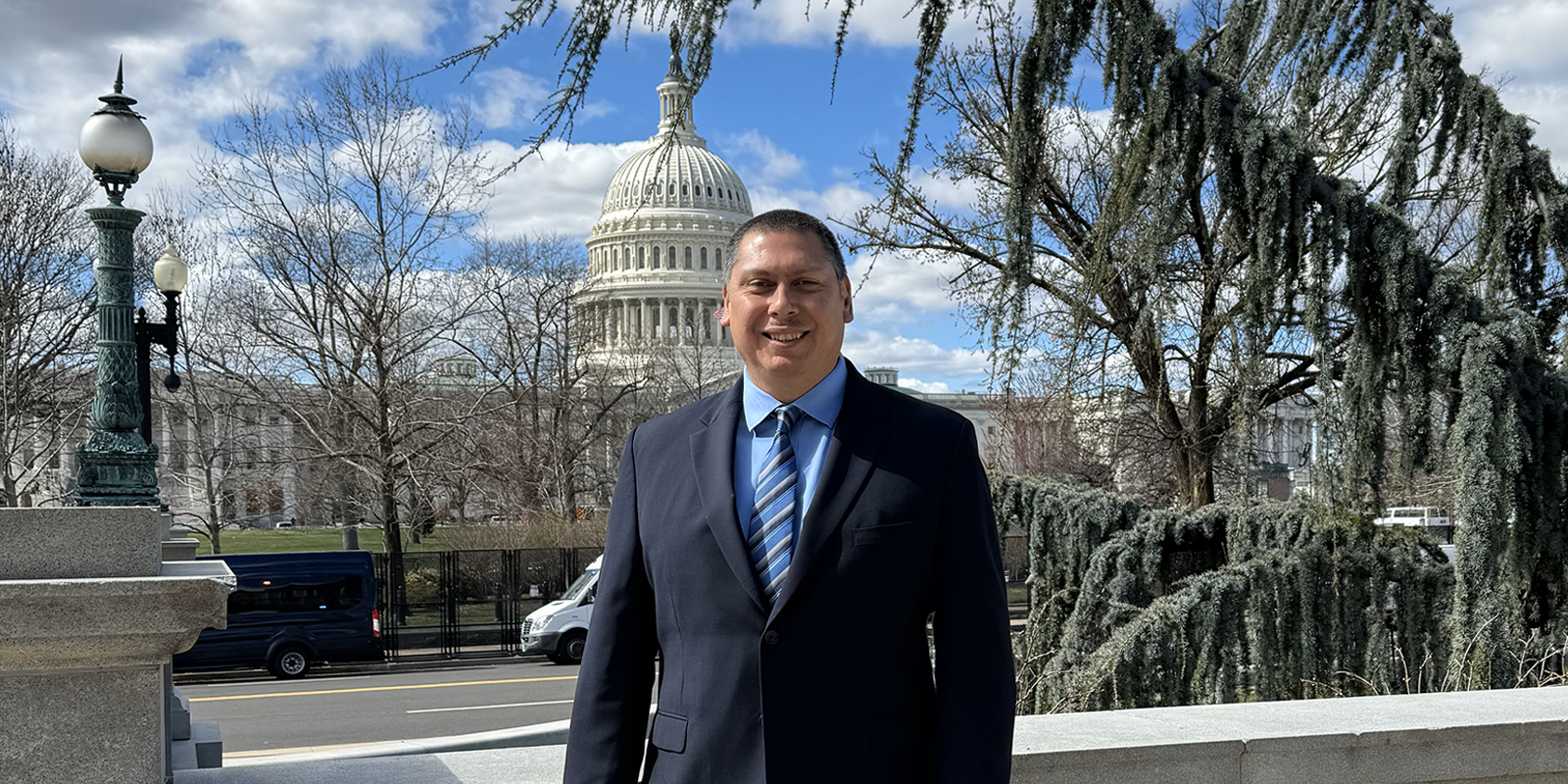
Growing up in Garden Grove, California, the son of a 17-year-old single mother, Richard “Rickk” Montoya Jr. never imagined he’d be sitting in the Capitol building during a State of the Union address.
But last week, Montoya, a Los Angeles Police Department 911 dispatcher, attended President Joe Biden’s third state of the union address. He was the guest of California Rep. Norma Torres, also a proud AFSCME member and like Montoya, a L.A. 911 emergency dispatcher before becoming a member of Congress.
With union blood in his bones, Montoya describes his path to both public service and a leadership role in his union – he’s the secretary-treasurer of AFSCME Local 3090 (District Council 36) – as “obvious to anyone but myself.”
Raised in a union family, with union values
“I come from a family of union workers,” says Montoya. “My grandfather was a union worker — a custodian at Disneyland. My mother was a clerk in the records department for Orange County probations and was also a union member. Unions have always been there. My mom was a teen mom, I’ve always thought it was the union benefits that helped her raise me on her own.”
After serving in the Army, Montoya returned to Los Angeles.
“LAPD is the biggest show in town, so I wanted to work for a department that had a rich history where I would get the most experience and get to do the most on a daily basis.”
While Montoya originally thought he’d be a police officer, becoming a police service representative, as 911 dispatchers are called in the LAPD, allowed Montoya to use many of the skills he learned in the Army.
Treating strangers like your family
Montoya’s specific role within the 911 system is a bureau coordinator.
“I oversee four to five different divisions of radio and telephone operators,” he says. He communicates with officers during emergencies and shares urgent information with other agencies, like fire departments, EMS and the California Highway Patrol.
For eight hours straight, Montoya says, “you are dealing with problems literally every minute and every second of the day. But it’s a great feeling when the call you took means you were able to get a person the medical attention they need. But it’s extremely stressful.”
Montoya says that when he fields a call, “I want to treat people in a manner as if that was my wife calling and needing help. We need to be there because it is a lifeline.”
Staffing issues compound the stress of the job.
“We’re having a hard time staffing. Specifically for 911, it becomes tough. One less body on the floor means call-answering time going down,” says Montoya. “We have a 95% standard: 95% of all calls have to be answered within the first 10 seconds. Our deployment levels are making 95% a hard target to clear.”
